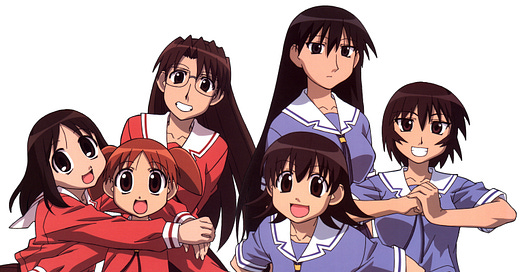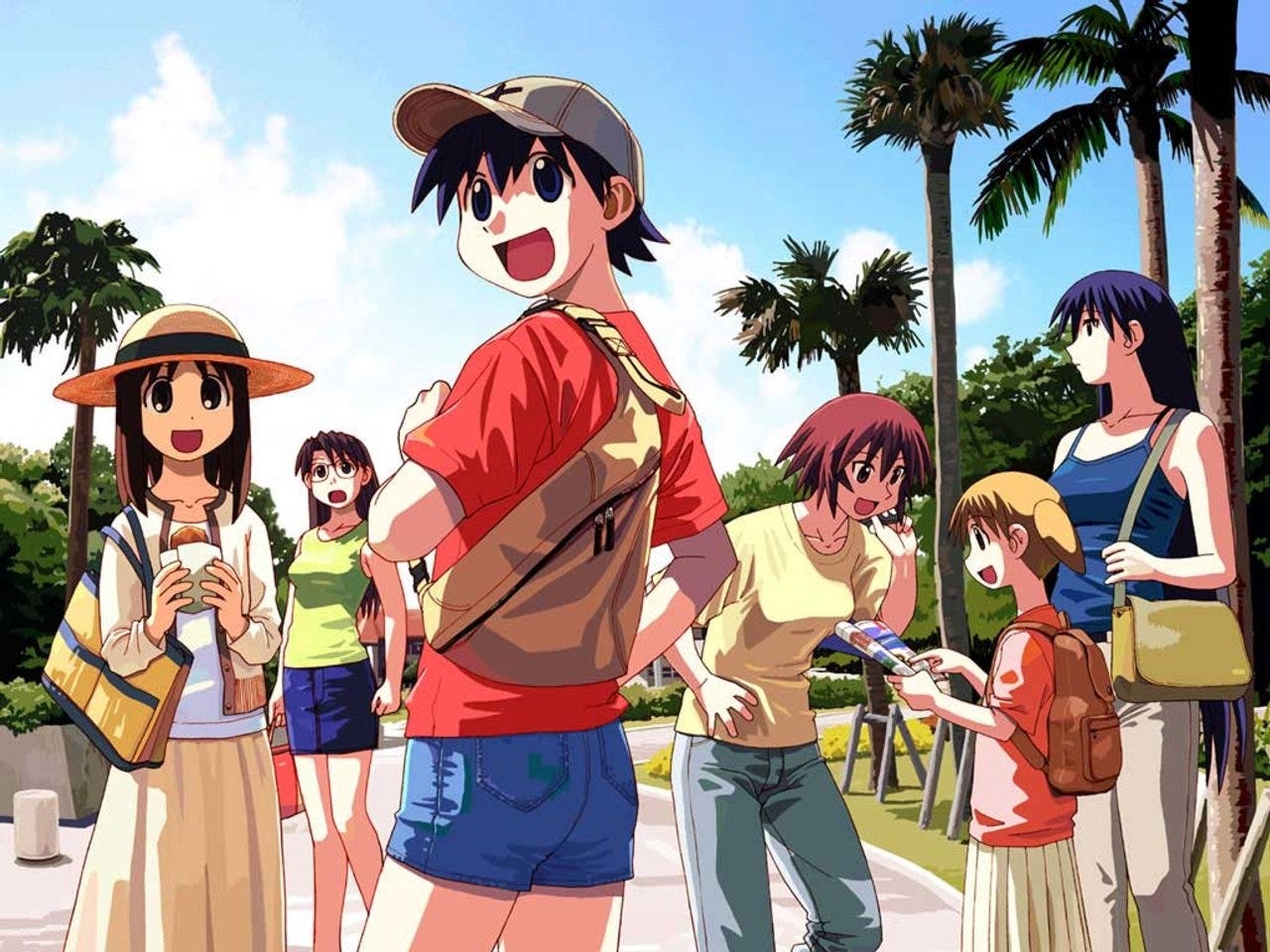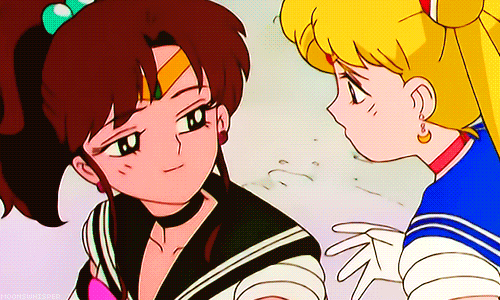Hey there, I’ve got somethin’ for these fine ladies for Women’s History Month. It’s about an anime adaption of the yonkoma comedy manga series by Kiyohiko Azuma, but it’s sadly not available on Crunchyroll, Netflix, or Hulu. It’s also about these fine ladies of this manga series, and it was serialized from February 1999 to May 2002 in the monthly magazine Dengeki Daioh by MediaWorks… and we call it Azumanga Daioh!
“Azumanga” is a portmanteau of the author’s name “Azuma” and “manga”, while “Daioh” comes from the magazine in which it was originally published, Dengeki Daioh. In the anime, “daioh” is mentioned during the next episode previews, used in context with the meaning “great king”.
Azumanga Daioh chronicles the everyday life in an unnamed Japanese high school of six girls: child prodigy Chiyo Mihama (Tomoko Kaneda in Japanese, Jessica Boone in English) and her struggle to fit in with girls five years older; reserved Sakaki (Yuu Asakawa1 in Japanese, Christine Auten in English) and her obsession with cute animals while certain ones seem to hate her; spacey Ayumu “Osaka” Kasuga (Yuki Matsuoka in Japanese, Kira Vincent-Davis in English) with a skewed perspective on the world; Koyomi “Yomi” Mizuhara’s (Rie Tanaka in Japanese, Nancy Novotny in English) aggravation at an annoying best friend; Tomo Takino (Chieko Higuchi in Japanese, Mandy Clark in English), whose energy is rivaled only by her lack of sense; sporty Kagura (Houko Kuwashima2 in Japanese, Allison Sumrall in English) and her one-sided athletics rivalry with Sakaki.
Secondary characters include homeroom teacher Yukari Tanizaki (Akiko Hiramitsu in Japanese, Louisa “Luci” Christian in English), her friend, physical education teacher Minamo “Nyamo” Kurosawa (Aya Hisakawa in Japanese, Monica Rial in English), and the creepy classical literature teacher Kimura (Koji Ishii in Japanese, Andy McAuvin in English). The story covers three years of tests, talking between classes, culture festivals, and athletic events at school, as well as time spent traveling to and from school, studying at Chiyo’s house, and vacations at Chiyo’s summer beach home and the fictional theme park Magical Land, concluding with the graduation of the main cast. It is generally realistic in tone, marked by occasional bursts of surrealism and absurdity, such as Osaka imagining Chiyo’s ponytails being “unscrewed” from her head and an episode featuring the characters’ New Year’s dreams.
An anime television adaptation titled Azumanga Daioh: The Animation was produced by J.C. Staff and aired in Japan between April and September 2002. It consisted of 130 four-minute segments compiled into 26 episodes. Starchild Records released the compiled episodes on DVD and Universal Media Discs (UMDs), and ADV Films produced an English-language version. Before the series, a theatrical short and an original net animation were also produced. Several soundtrack albums were released, as well as three video games.
…and that’s what the anime and video games are about: female protagonists! Cory out. (Remember to hit the Subscribe button.)
Her name is always written as “Yū Asakawa”, but here it’s romanized as Yuu because many of our North and South American keyboards don’t have the macrons. Asakawa is also the ex-wife of fellow seiyuu Showtaro Morikubo.
The same seiyuu voices in Dead or Alive’s (and Ninja Gaiden’s) own Kasumi post-DOA2.







